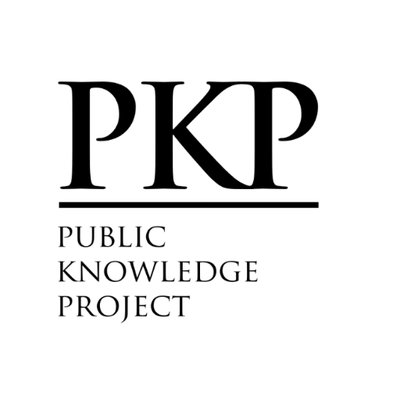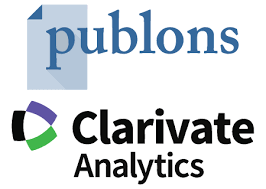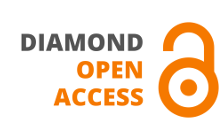The impact of ICT on the organizational and relational strategies of banks in Cameroon.
Cadre conceptuel relatif aux Technologies de l’Information et de la Communication
DOI:
https://doi.org/10.59051/joaf.v15i1.813Keywords:
ICT- Efficiency Organizational Strategy-Relational Strategy-BankAbstract
Purpose: The aim of this study is to shed light on the impact of ICTs on the relational, organizational and human strategy of banks in the Cameroonian context.
Method: The research methodology used for this purpose involves semi-directive interviews with the various stakeholders (bankers and customers), supplemented by a questionnaire based on an econometric model to better define the object of the research. In addition, the data collected was analyzed on the basis of thematic content on the one hand, and a comparative analysis of variables on the other.
Results: The main results show that the integration of ICT enables the bank to improve its customer relations strategy; the adoption of ICT leads to greater organizational and human efficiency within the bank.
Originality/Relevance: The originality and relevance of this study lies in the dematerialization via ICT that has pushed banks still anchored in the traditional mode towards remote banking in view of the socio-economic context experienced by Cameroon, marked by health and security crises.
Downloads
References
Autissier D. et Vandangeon-Derumez I. (2013), « Le changement organisationnel : 10 études de cas commentées », Editions Eyrolles, 237 pages.
Bekono S. S. et Bekolo C. (2020), « Les pratiques de l’innovation ouverte en contexte de PME
de classe mondiale », Revue Internationale des Sciences de Gestion, vol. 3, n° 2, p. 716-737.
Brillet F., Garcia J-F. et Montargot N. (2016), « Conditions de réussite d’une politique d’intégration et développement des compétences : cas d’une entreprise publique en mutation », Management et avenir, n° 6, p. 105-130.
Chesbrough H. et Schwartz K. (2009), « Innovating business models with co-development partnership », Research technology management, vol. 30, n° 1, p. 45-59.
Des Garets V, Paquerot M. et Sueur I. (2009), « L’approche relationnelle dans les banques.
Mythe ou réalité ? », Revue Française de Gestion, n°161, 2009, p. 123-138.
Durand T. (2006), « L’alchimie de la compétence », Revue française de gestion, n°1, p. 261- 292.
Economist Intelligence (2011), Une étude réalisée auprès des chefs d’entreprises.
Ferris M. (2007), « Insights on mobile advertising, promotion and research », Journal of Advertising Research, vol 47, n° 1, p. 28-37.
Germain O., Cadieux L. et Denis U. (2009), « Entre compétences fondamentales et paradigme organisationnel : l’impasse stratégique. Le cas Guy Degrenne », Management et Avenir, n° 5,
p. 36-54.
Godé C. (2012) « Compétences collectives et retour d’expérience « à chaud ». Le cas de
l’équipe de voltige de l’armée de l’air », Revue française de gestion, vol. 4, p. 167-180.
Hewitt-Dundas N. (2006), « Resource and capability constraints to innovation in small and large plants », Small Business Economics, vol. 26, n° 3, p. 257-277.
Jurado M. (2016), « L’approche par compétences (APC) : pour une personnalisation de l’évaluation? », Administration et Education, n° 2, p. 37-43.
Koenig G. (2015), « L’apprentissage organisationnel : repérage des lieux », Revue française de gestion, n° 253, p. 83-95.
Molina-Azorin, J. F. (2011). The use and added value of mixed Methods in Management research, Journal of Mixed Methods Research, vol. 5, p. 7-24.
Razouk A. A. (2014), « Mobilisation des ressources humaines et innovation des PME », Revue française de gestion, n°6, p. 107-126.
Teo H. K., Tan B. C. Y. et Wei K. K. (1997), « Organizational Transformation using Electronic data Interchange: The Case of Trade Net in Singapor », Journal of Management Information Systems, vol. 13, n° 4, p. 139-165.
Trend Consultant. (2014), Les enjeux de la dématérialisation.
Torrès O. (1997), « Pour une approche de la spécificité de la PME », Revue Internationale PME, vol. 10, n° 2, p. 9-43.
Villesèque-Dubus F., Chapellier P., Mignon S. et Mazars-Chapelon A. (2017), « L’innovation managériale: Les multiples voies d’une spirale vertueuse », Editions EMS, 248 pages.
Volberda H. W., Van Den Bosh F. A. et Mihalache O. R. (2014), « Advancing management innovation: Synthesizing processes, levels of analysis, and change agents », Organization Studies, vol. 35, n° 9, p. 1245-1264.
Wacheux F. (1996), Methodes qualitatives et recherche en gestion, Economica, p. 246.
Yin R. K. (2003), Applications of case study research, Thousand oaks, CA: Sage publication, coll. Applied social Research.
Downloads
Published
How to Cite
Issue
Section
License
Copyright (c) 2024 Joachim Achille Christel MBIDA

This work is licensed under a Creative Commons Attribution-NonCommercial-NoDerivatives 4.0 International License.
Authors who publish with this journal agree to the following terms:
- Authors retain copyright and grant the journal right of first publication with the work simultaneously licensed under a Creative Commons Attribution License that allows others to share the work with an acknowledgement of the work's authorship and initial publication in this journal.
- Authors are able to enter into separate, additional contractual arrangements for the non-exclusive distribution of the journal's published version of the work (e.g., post it to an institutional repository or publish it in a book), with an acknowledgement of its initial publication in this journal.
- Authors are permitted and encouraged to post their work online (e.g., in institutional repositories or on their website) prior to and during the submission process, as it can lead to productive exchanges, as well as earlier and greater citation of published work (See The Effect of Open Access).






















